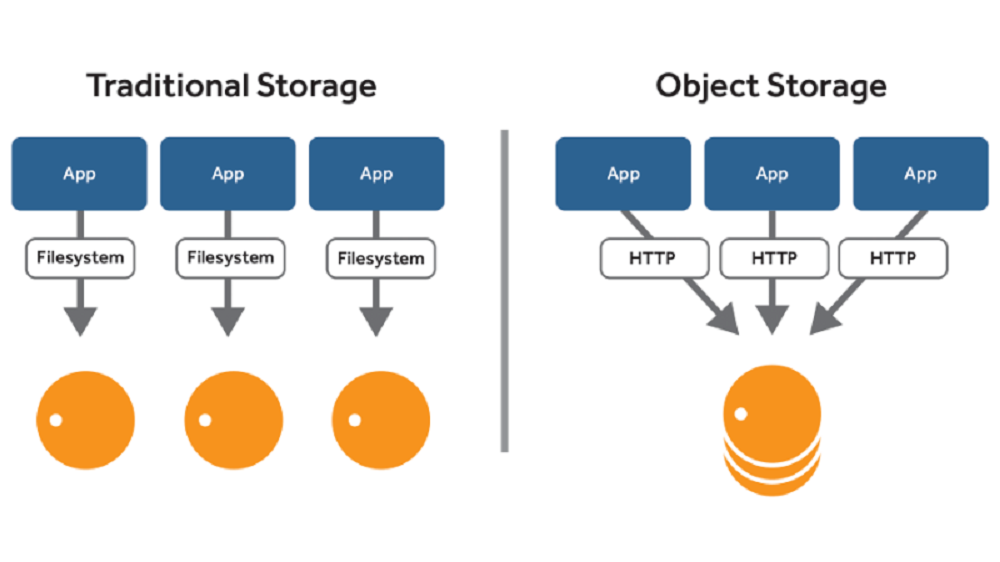For businesses of all sizes, S3 (Simple Storage Service) can dramatically improve performance. In fact, according to a recent survey, 94% of enterprises reported improved operational efficiency after migrating to cloud storage solutions like S3. It is the best storage option for today's IT infrastructures, whether you work in the cloud or prefer an on-premises setup.
What is S3
Unlike traditional file and block systems, object storage provides a reliable backup and offers scalability, immutability, and flexibility.
S3 Object Storage is a storage method used to manage large volumes of unstructured data. In this model, data is stored as separate objects, each containing the information itself, its metadata, and a unique identifier.
In this article, we will discuss this technology and the scenarios for its use in the enterprise.
S3 Storage Use Cases

S3's key feature is its flat, non-hierarchical structure. Each object has an identifier and metadata, allowing users to find files directly in the address space using the HTTP API. S3 can store any kind of data.
Let's take a closer look at these kinds of data:
1. Archive and Backup: This is the most common application for S3. You can store media materials, accounting reports, system logs, video surveillance archives, backups of virtual machines, databases, websites, etc. A study found that organizations using S3 for backup reduced their recovery time by up to 50%. S3 integrates seamlessly with a wide range of backup and archive software, allowing organizations to automate processes while minimizing human error.
2. Disaster Recovery: Regular backups in S3 guarantee that organizations can recover quickly from an outage. In fact, businesses that implement a robust disaster recovery strategy can reduce downtime by 80%. Modern disaster recovery tools are fully compatible with object storage.
3. Big Data and Analytics: Object storage is the ideal solution for storing and managing large amounts of unstructured data used in big data and analytics applications. S3 is well-suited for storing log files, sensor data, and social media feeds. Additionally, S3 supports data lake architectures, allowing both structured and unstructured data to be stored in its native format. This capability simplifies processes and accelerates data analysis by eliminating the need for data transformation.
4. IoT and Sensor Data: The Internet of Things generates massive amounts of data in real time. With its scalability, S3 enables organizations to store and analyze data from millions of devices. According to industry reports, IoT data is expected to reach 79.4 zettabytes by 2025, making efficient storage solutions essential for businesses.
5. Media and Entertainment Content: S3 can handle large file sizes, making it perfect for storing and managing collections of video and music. When distributing multimedia content, it provides low latency for users around the world.
Advantages of S3 Object Storage
-
Metadata-driven Operations: Object Storage manages data as individual units within a single repository. This enables efficient indexing, searching, and retrieval. Organizations have reported up to a 40% increase in search efficiency after adopting metadata-driven operations.
-
Unlimited Scalability: In an object storage environment, the solution is simple—if you run out of space, just add another array. This flexibility allows businesses to scale storage as needed without significant upfront costs.
-
Data Immutability: Objects cannot be modified once written, helping to ensure data integrity, cybersecurity, and compliance. This feature is crucial for industries like finance and healthcare, where compliance with regulations can be stringent.
-
Programmability: The S3 storage architecture allows data to be retrieved using APIs and HTTP calls. This makes it much faster and easier to access the information you need. Developers leveraging S3-compatible object storage services can reduce application development time by up to 25%.
-
Cost Effectiveness: With object storage, you only pay for what you use, reducing the cost of maintaining your own infrastructure. Organizations have reported savings of up to 60% on storage costs after transitioning to S3.
By understanding these advantages and use cases of S3 Object Storage, businesses can make informed decisions about their data management strategies and leverage this technology to drive growth and efficiency.




